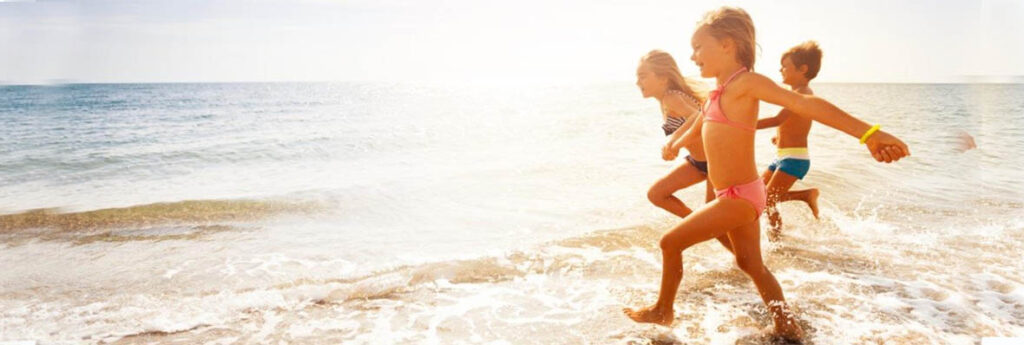More than 15,000 adults across 18 countries were asked about their childhood memories. Those who remembered spending more time near the sea believed they were happier as adults.
The study published by the Journal of Environmental Psychology found adults with the best mental health reported spending more time as youngsters around natural ‘blue spaces’ which included lakes and rivers, as well as beaches.
Researchers said enjoying nature as a child leads to being more outdoorsy in later life, with ‘beneficial consequences’ for their wellbeing.
Numerous studies have shown that people who spend more time outdoors are happier and less stressed.
Being in nature usually means exercising more, which has been shown to improve mental health because it causes the body to release ‘feel-good’ hormones.
Questions included ones about participants current well-being, how regularly they visit different natural environments and why they go to them, including if their childhood experiences influenced them.
Participants were also asked how accessible blue spaces were to them as children, whether their parents were comfortable with them playing there and how often they visited them.
This indicated spending times at lakes or rivers was just as beneficial as being by the sea, the researchers said.
Lead author Valeria Vitale, a doctoral candidate at Sapienza University of Rome, said the findings support the need to ‘encourage childhood visits’ to blue spaces.
‘Our findings suggest that building familiarity and confidence in and around blue spaces during childhood may stimulate an inherent joy of nature,’ she added.
‘[It may also] encourage people to seek out recreational nature experiences, with beneficial consequences for adult mental health.’

